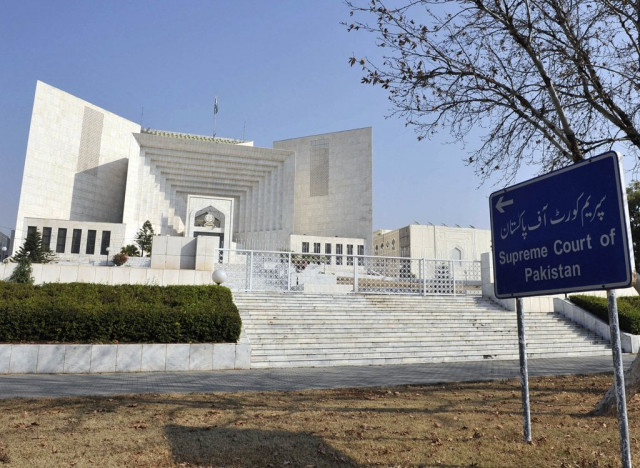No legislation can overrule court decision: SC
Justice Bandial says parliament can’t make decisions on the basis of compassion alone

The Supreme Court on Wednesday observed that there could be no legislation overriding its decision.
A five-judge larger bench of the apex court, headed by Justice Umar Ata Bandial, was hearing the review petitions filed against its Aug 17 verdict, which had declared as illegal and unconstitutional a PPP-era law called the Sacked Employees (Reinstatement) Ordinance Act, 2010, (SERA) under which a number of people were employed or promoted in 1989-90. The verdict had rendered around 16,000 government employees jobless.
The court noted that where would the independence of the judiciary be that if laws were passed against its decisions.
Sardar Latif Khosa, the lawyer representing the dismissed employees of Sui Gas and State Life, contended that recruited workers were fired as soon as the PPP government came to an end.
“The PPP had also reinstated the judges sacked during the eras of dictatorship. The PPP's election promise was to reinstate employees,” he added.
Justice Mansoor Ali Shah noted that illegal dismissals had been taking place since 1947. “Why have only these few employees been reinstated?” he inquired.
Khosa replied that after their dismissal, the employees had approached the courts.
“The courts reinstated several employees and upheld the dismissal of many others.”
Justice Shah remarked that there could be no legislation against the decision of the court.
“If the court punishes someone, can parliament acquit him through legislation?”
Read Why should court probe audio leak if concerned parties not interested, asks IHC CJ
He added that restore all the people who had been sacked so far if this process had to be adopted.
Justice Bandial noted that the employees who had filed the review petitions were temporarily recruited.
“Parliament cannot make decisions on the basis of compassion alone.”
Justice Shah observed that some employees were fired in 1996-97. “Some decisions went in their favour and some were against them,” he added.
“In the presence of court decisions, a law was brought after 11 years and the people sitting at home were reinstated.”
Justice Bandial noted there should have been no legislation in 2010 in the wake of the 2003 court decision.
“Is it right to give relief to employees who were employed for six months in the same way as those who were employed for 12 years?”
He added that in the context of 2003 court decision, there was no legislation in 2010.
“Those who were recruited in 1996 were expelled in 1997, so they worked for 6 months only.”
The judge remarked that the court decision of 2003 was related to those who had worked for 10 years and were recruited in 1988-89.
Khosa said that no court had ruled against the employees before 2021.
Justice Shah noted that the main question was why the case of sacked employees was not brought before the court.
During the hearing, attorney general for Pakistan also came to the rostrum and took the position that it would be appropriate for the case of those reinstated under the ordinance to approach the high court.
The hearing of the review petitions was adjourned till Thursday (today).



















COMMENTS
Comments are moderated and generally will be posted if they are on-topic and not abusive.
For more information, please see our Comments FAQ